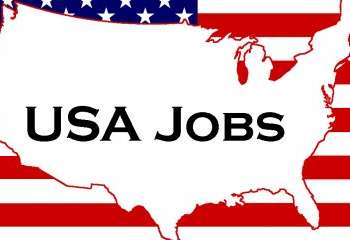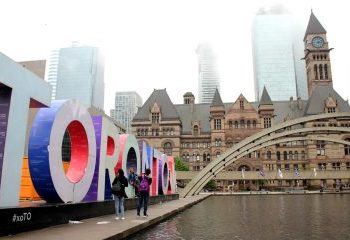Anger flared in the land last night, following a strident attempt by the Minister of Education, Alhaji Adamu Adamu’s move to resuscitate the defunct Northern Nigeria Board for Arabic and Islamic Studies,NBAIS, using funds from the federation account.
To get the board back into life, the Minister had forwarded a Memorandum to the Federal Executive Council, FEC, seeking a special approval for a waiver to re-establish the National Board for Arabic and Islamic Studies as a parastatal of the Federal Ministry of Education.
Vanguard learned from competent sources that although the memo had been received by the FEC, the Presidency had asked that it be kept in view but it was unclear whether that had to do with funding or the mood in the land.
Entitled Approval for a waiver for the establishment of the National Board for Arabic and Islamic Studies as a parastatal of the Federal Ministry of Education, the minister enumerated the functions which the new board would play when established and pleaded with the Presidency to grant the approval for it to come into existence.
The minister said: “The purpose of this memo is to seek the council’s approval for a waiver for the establishment of the National Board for Arabic and Islamic Studies as a parastatal of the Federal Ministry of Education.
“NBAIS was formally established in 1959 by the government of the defunct Northern Region to perform the following functions: To develop curriculum and syllabus for Arabic and Islamic schools and centres; to supervise these same Arabic and Islamic schools and centres; to ensure high enrollment of learners into the formal school system that would have otherwise been out of school with the attendant security implications; and to impart specialized knowledge on Arabic and Islamic Studies through the Arabic medium as well as other formal school subjects in English.
The Arabic school and Islamic centres are also to provide a platform for regulating Islamic educational contents that are sound, appropriate and geared towards the acquisition of positive values for moral, human and national development; to conduct final examinations for students in all relevant schools, in line with its nomenclature and mandate, and be responsible for the issuance of Junior Arabic and Islamic certificates and all other functions expected of such a parastatal”.
Marketing it further to FEC, the minister asked the council to note that following the creation of states in 1967, Ahmadu Bello University, Zaria, took over the running of NBAIS and that the Board conducted final examinations in 908 schools in 23 states and the FCT.
He also asked the council to note that recognition of NBAIS certificates would go a long way in mainstreaming TsanGaeya education into basic secondary education and provide additional alternative pathway for transit into tertiary education.
However, the minister was silent on the fate of the large number of parastatals and boards already under the Federal Ministry of Education.
The FME has no fewer than 20 parastatals and boards, some of which are merely existing in names.
These include National Commission for Nomadic Education, National Commission for Mass Literacy, Universal Basic Education Commission, National Institute for Nigerian Languages, National Arabic Language Village.
Neither the Minister nor his Minister of State could be reached for comments on the memo but a top official of the ministry who pleaded anonymity, said there was nothing wrong in establishing the board as long as it would add to the acquisition of knowledge.
CAN, NLC, activist spit fire
The Christian Association of Nigeria, CAN, the Nigerian Labour Congress and and an activist, yesterday, spat fire on the proposal, describing it as distracting and completely unnecessary, especially at a time Nigeria was bleeding as a result of harsh economic climate.
Although CAN said it was yet to get the details of the proposed parastatal, its Director of Legal and Public Affairs, Kwamkur Samuel, promised to make an appropriate response once the details were unfolded by the government.
“We have not read the details of the proposal but we wonder for what purpose a nation that is supposed to be a secular or multi-religious state and also passing through critical period of economic recession will be so interested in projecting programmes and projects that have to do with a particular religion at the expense of others.
“What is the economic or collective benefit of such a religious parastatal? Is it also a technical way of showing dominance and generating employment for a religious group by the federal government?
“Look, let us just watch and see how the proposed National Board for Arabic and Islamic Studies plays out and I can assure you that CAN will respond appropriately when we study the details.”
Tearing the proposal by the minister apart, organised labour and some human rights activists warned that they would take up issues with the government over such an action at a time the country was facing serious hardship.
While organised labour said it would engage the government on that once the details emerged, Niger Delta human rights activist and lawyer, Liborous Oshoma, said the proposal was an attempt to drag the country backwards when many countries in the world were going forward.
Malam Adamu Adamu
Organised labour to meet over proposal
General Secretary of NLC, Dr. Peter Ozo-Eson, in his reaction, said: “I am just hearing of that now. We will have to discus and take a decision.
“We will get the various unions and the educational sector and engage them on this,” Ozo-Esan said.
It will drag Nigeria back to Stone Age —Oshoma
Oshoma said: “It is very unfortunate that we have square pegs in round holes in terms of ministerial appointments.
“The world now is diversifying into knowledge-based economy but here we are left in transit and still thinking of nomadic and Islamic education when we have schools and universities owned by the federal government with no functional laboratories and equipment.
“Even the teaching hospitals are in a very sorry state and here we are talking about Islamic education.
“In fact, the former President concentrated so much on nomadic and Islamic education just to please a section of the country with no dividends to show at the end of the day.
“This has been the bane of this society from the first Republic till date, where a section of the country is intentionally dragging others back in terms of educational development.
“I don’t think the minister should be bothering himself with institutions that are not in existence but should strive to strengthen the ones that are already there in terms of educational development.
“We have too many commissions, boards and parastatals that are non-performing and serving more as waste pipes, whereas we would have made more progress in education, health, infrastructure and human development with a fewer number of boards and parastatals.
“So it saddens me when a minister comes with such irrelevant memorandum which should be the concerns of state commissioners of education in their respective states and not the Minister of Education, who should be thinking of how to improve education nationally.”
He said it was such policies of government tilted towards favouring a section of the country that had led to the calls for the restructuring of the country, adding that some people who believed that they were superior to other regions forgot that Nigeria was a secular country.
“This is the reason people are now calling for the restructuring of the country because this is an issue that has nothing whatsoever to do with the federal government of Nigeria,” Oshoma said.
From Kano, an Islamic cleric, Ustaz Mohammad Kabir described the move as a right step in the right direction.
He said the “move is long overdue in the light of the complementary role it contributes to pursuit of knowledge.
On his part, Malam Ismail Yunus of Naibawa mosque said “the move would certainly restore our hope in the polity, and erase mutual suspicion of one dominant faith wanting to override the other.”








![Manchester United fans delighted as Pogba finally scores first goal for club [Tweets]](https://illuminaija.com/wp-content/uploads/2016/09/wp-1474725211418.jpg)















